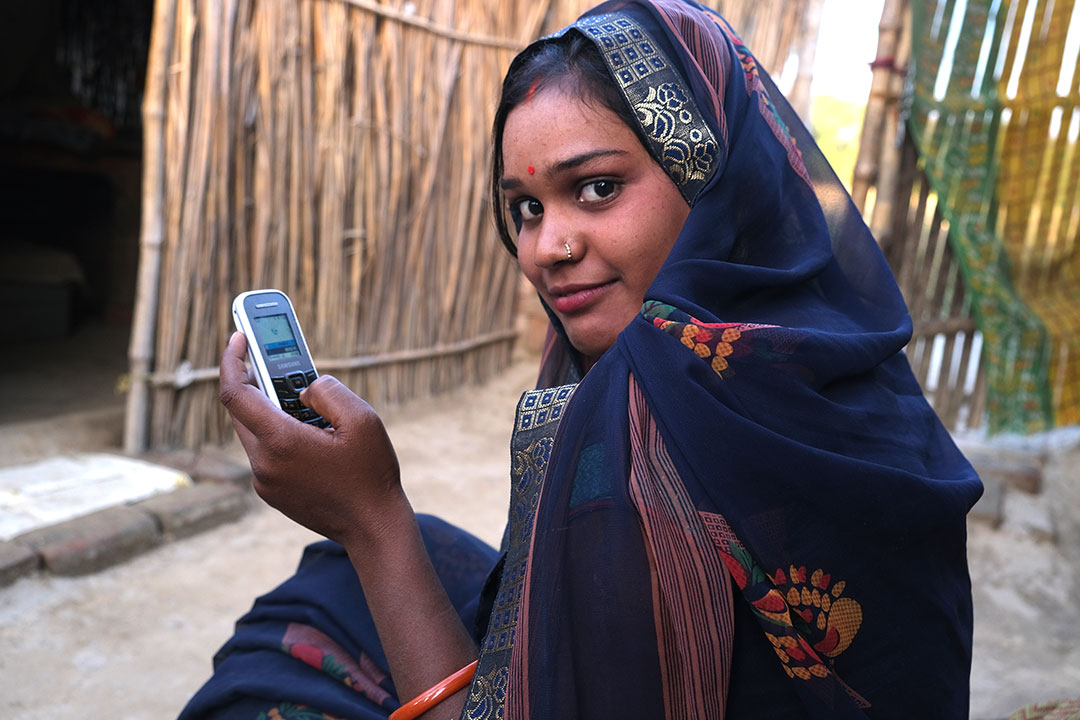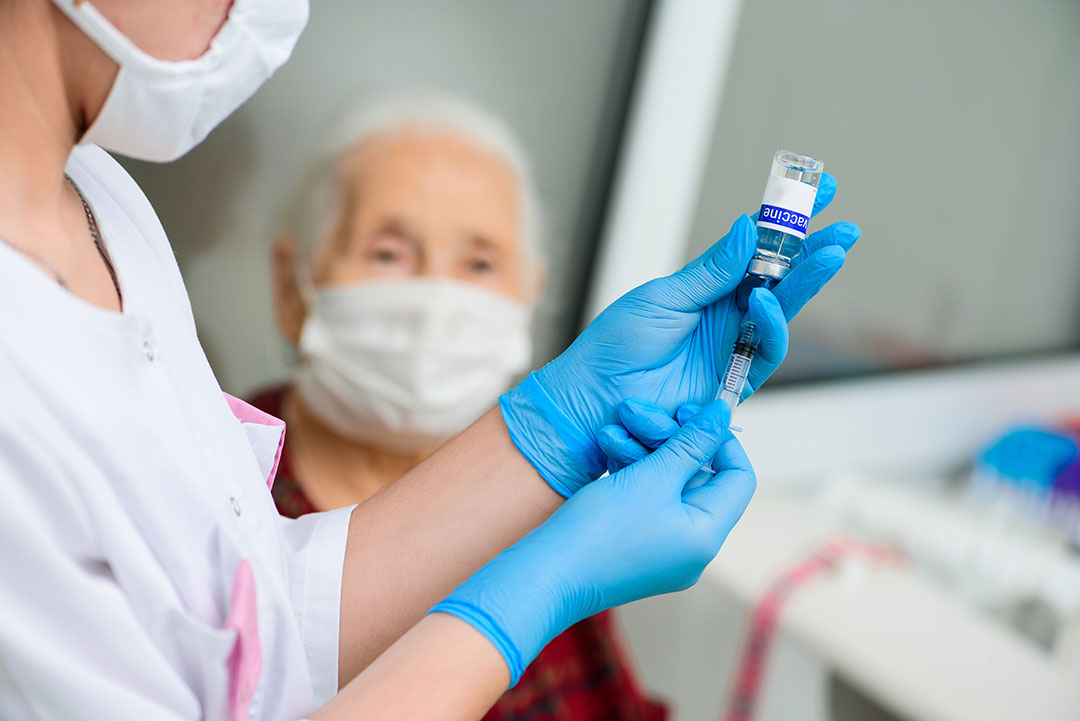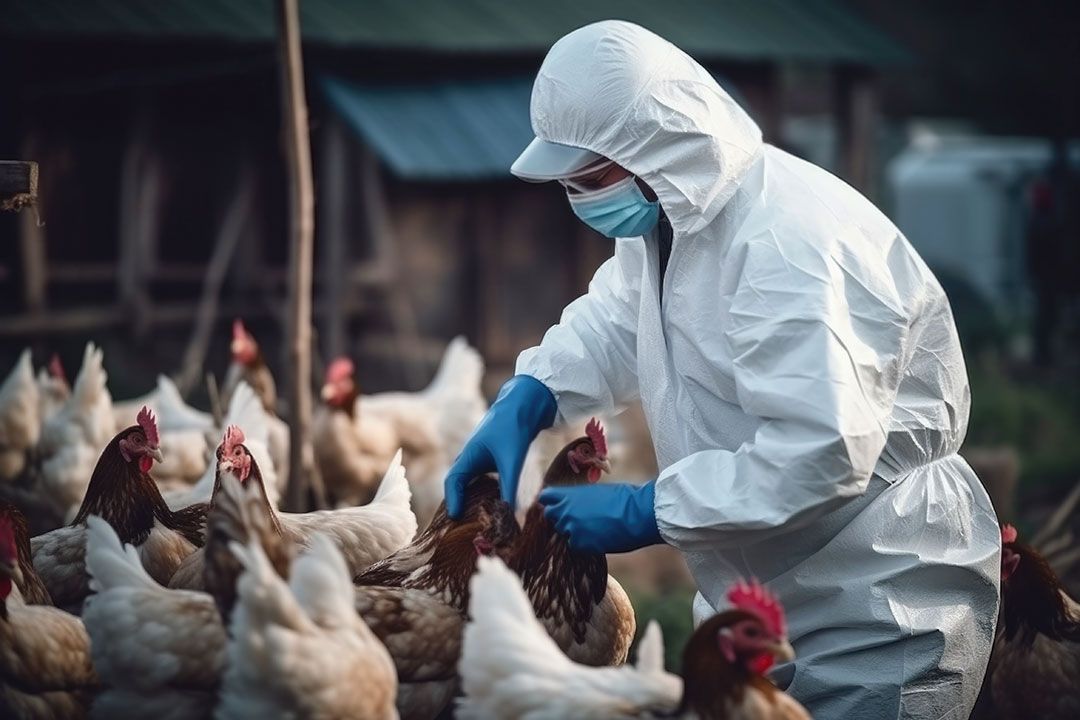The difference a vaccine can make
A health worker in Malawi sees the impact of the new malaria vaccine first hand.
- 26 April 2024
- 4 min read
- by UNICEF

James Chinomba sits on the balcony with his youngest son Wisdom, a bright five-year-old boy, before going off to feed the pigs and tend to his farm after a day at work.
James is a health worker at the Chileka Health Center in central Malawi. When he heard the malaria vaccine was being rolled out as part of a pilot programme, he signed up Wisdom immediately.
His three older children who missed the vaccine were getting sick almost every two months. James is already seeing the results and differences between Wisdom and his brothers. Wisdom, fully vaccinated, experiences fewer bouts of malaria compared to his older siblings.
He hasn't contracted malaria for a year, just because of the vaccination. I noticed a significant change in the health of this child.
– James Chinomba
Over his 15 years as a health worker, James, like many of his colleagues, has seen the devastating impact of malaria, that starts with a mosquito bite and can end in hospitalization and even death if not treated early.
Almost every minute, a child dies from malaria, and Africa accounts for more than 95 per cent of the 619,000 annual deaths from malaria, with children under five making up much of the death toll.

Credit: UNICEF/UNI531565/Khanyizira
James lives with his wife Eveness and their four boys in an area with dams, rivers and swamps. These are breeding grounds for mosquitoes and malaria. Despite having a vaccinated child, James still takes precautions like scanning the house for mosquitoes, lighting coils, using insecticide-treated bed nets, and teaching his children to do the same so that the whole family is protected from infection.
Have you read?
"The malaria vaccine is very important, considering where we stay. It was one of the areas where children were under severe attack of malaria before the vaccine came," he says.
Malaria vaccine in Malawi
Since 2019, health centers in Malawi like Chileka, have been part of a pilot programme for a malaria vaccine supported by UNICEF, Gavi, the Vaccine Alliance, and the World Health Organization. Children are given four jabs from the age of five months to their final dose at 23 months. The programme has shown to reduce symptomatic malaria cases by 75 percent during the 12 months following a three-dose series.
Initially, health workers engaged with community and religious leaders, and sensitized parents to the vaccine. Many community members are now signing up their children.

Credit: UNICEF/UNI531578/Khanyizira
James has also seen reductions in malaria infections since the pilot was rolled out. He says, "we do a malaria test, and the result comes out negative, mostly in the children who had the vaccine."
Mothers often know when their babies are scheduled for the next shot, and make sure they can come to Chileka or another designated spot where health workers like James undertake vaccinations. James only hopes that the vaccine will continue to be available and that perhaps one day the center will not register even a single case of malaria.
"As health workers, we only ask that there is no vaccine shortfall or drop in the supply. The vaccine should keep coming as the new generation is growing," he says.
The malaria vaccination programme, supported by UNICEF, Gavi, the Vaccine Alliance, the World Health Organization and other partners, was piloted in Malawi, Kenya and Ghana. It targets children who are most vulnerable to malaria infections and deaths. The vaccine has been given to 2 million children across all three countries.
The WHO-approved vaccine is now being rolled out in an additional 9 countries – Benin, Burkina Faso, Burundi, Cameroon, the Democratic Republic of the Congo, Liberia, Niger, Sierra Leone and Uganda. Partnering with African countries, the programme continues to provide free vaccines for children in their first two years of life, to help ensure that children and communities in sub-Saharan Africa can safely grow and prosper.
Website
This article was originally published by UNICEF.








